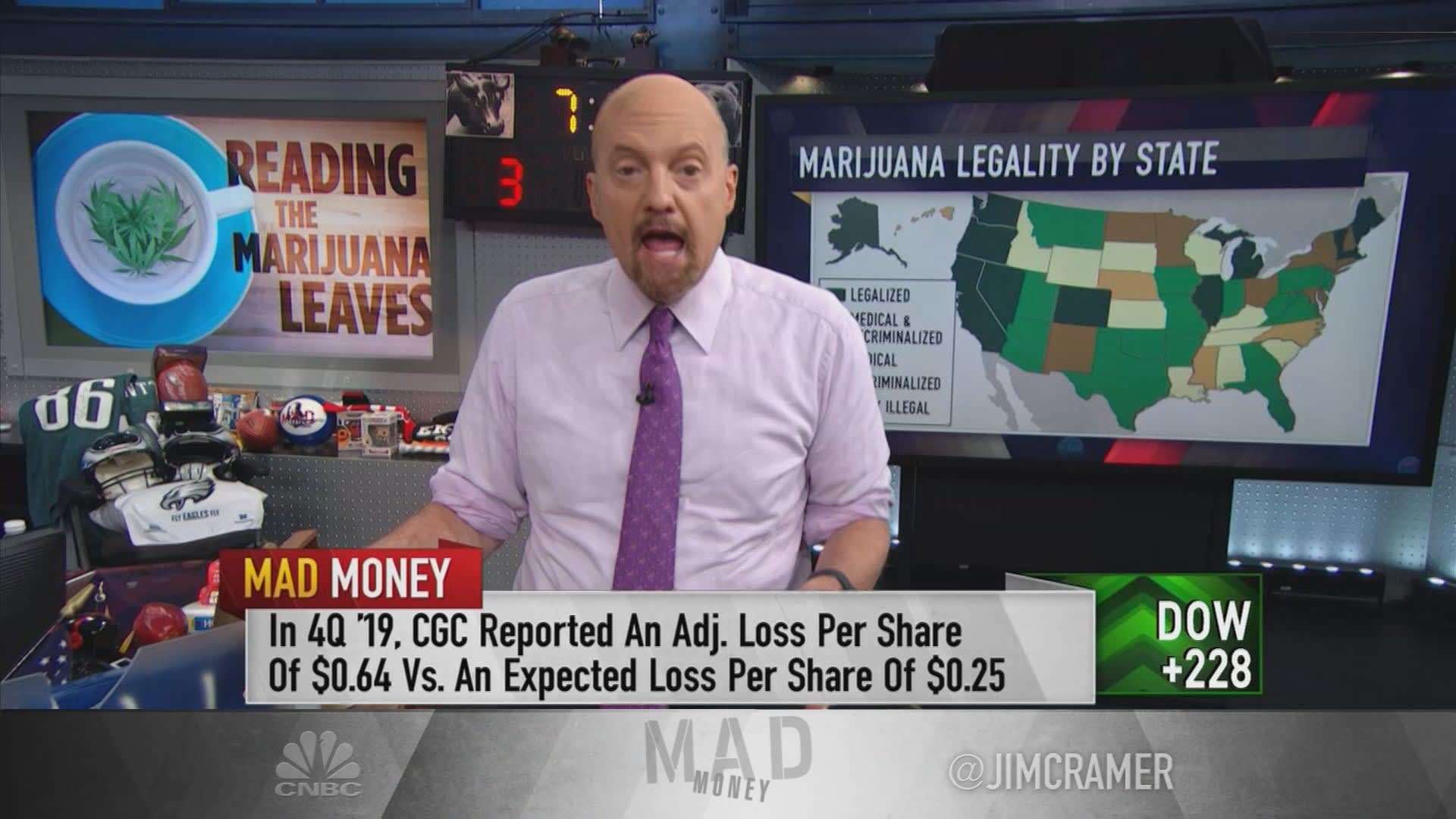
This is part five of a six part series on the intersection of psychedelics and capitalism, and the early investors making it happen.
At the 2020 Green Market Summit on the Economics of Psychedelic Investing, there was a lot of talk about the types of investors that psychedelic businesses are looking for. Panelists said that their ideal investor is someone who is knowledgeable about the substances and in it for the long haul vision of their company. As the cannabis industry suffers from plummeting stocks and investors dipping out with their profits, panelists stressed that cannabis investment strategies are not necessarily beneficial for the psychedelic industry (not that they’ve been beneficial to the cannabis industry, either, even if they’ve paid off for a few investors). Many investors are encouraging a slow and steady approach, as opposed to a race to the finish line.
“I think part of the downfall of the cannabis industry was the green rush,” said Brian Quigley, co-founder of Green Sky Strategy—a cannabis communications firm which is seeking to develop psychedelic and adaptogenic products.
“The here and now [mindset]. Returns today. What’s the exit? When is Big Company ‘X‘ gonna buy me and make me a millionaire? That [mindset] led to a lot of bad behavior from a competitive perspective. And, as soon as that capital turned off, which happened this year—I mean the cannabis industry in California is having its own little mini version of the financial crisis,” he said. “Capital has turned off, bills are not getting paid, money is not flowing, and companies are going bankrupt. Not just small companies.”
Smash cut to r/ShroomStocks—a subreddit forum created for individuals interested in investing in psychedelics, with the slogan “Let’s Ride the Mush Rush!”
A recent post to the subreddit, entitled “No One Cares About Yield Growth, Please Stop Pumping Garbage,” asked users to stop posting about what the writer deemed worthless companies. For context, cannabis company Yield Growth Corporation recently created a subsidiary called Flourish Mushroom Labs, and submitted a patent application for using psilocybin for weight loss. The Reddit post went on to say, “It’s all flash and if you really look into the company they have no real IP [intellectual property]. If it isn’t MindMed, Atai Life or Compass Pathways we shouldn’t encourage pumpers!”
One user responded, “Stock works on perception, at the end of the day people flock to the one that’s talked about the most.”
Another user responded, “As far as initial legitimacy and long term holds, you’re right…there’s no denying the 3 companies you named are (will be) the right way to go. But make no mistake, they won’t be the only ‘plays’ in the industry. Not advocating for Yield by any means, but I did make 75% profit off their recent increase and cashed out. Play the field right and there’s money to be made even off some of the shit companies purely based on the wave.”
There are notable issues with the attitudes of both the original poster, and the users who responded. Both denote systemic problems with psychedelic commodification and integration into a capitalist ecosystem.
The issues with IP
The Reddit post, which claims there’s no worth in a company’s stock if it’s not creating IP isn’t technically wrong from an investor’s perspective. But, it points to a larger issue with a for-profit psychedelic system—an issue less about profits, and more about trade secrets.
The reason investors’ focus falls on a company’s patents, trademarks, exclusivity contracts, and other intellectual property is because this IP increases the barriers to entry for other companies who wish to enter the market. From an investor’s perspective, this looks great, because the company they are invested in is the only one profiting from whatever it has patented. But, on the psychedelic landscape, this creates barriers to things like efficient ways to produce psilocybin, access to qualified manufacturers, and cost-based prices, solely for investor benefit. The attitude of any industry turns from collaborative to competitive as companies introduce increasing numbers of barriers. Frankly, this seems antithetical to the mission that many of the companies entering this space claim to have: increasing access to patients, offering reasonable prices, and working for the betterment of humanity.
Speaking with the website Disruption Hub, patent attorney Gwilym Roberts explained that the issue with patents is that they can lead to monopolies and domination. (Former PayPal co-founder, current mass surveillance magnate, and newly minted psychedelic investor, Peter Thiel, has even gone on the record saying that he thinks monopolies are a good thing.)
“The way the system has developed to resolve that conflict is to provide a limited monopoly as a reward for the innovation. You have to obtain a patent on a territory by territory basis. They are temporally limited, with a maximum of 20 years life protection, and you cannot have a patent for a trivial improvement. You must have what is described as an invention,” Roberts said. “Those three concessions mean that there are limitations on the monopoly, and it is considered that there is a decent balance against the risk of monopoly.”
Twenty years of protection can mean a whole lot in an emerging industry, though. And—as Forbes contributor Erik Kain writes in his piece “The Problem With Patents”—”patent laws stymie growth by creating huge barriers to entry for new entrants and, in some cases, by crowding out current competitors. In the best of circumstances what emerges is a duopoly. Think Intel vs. AMD in the chip market.” Or, Apple vs. Android; Coca-Cola vs. Pepsi; Boeing vs. Airbus; and so on.
The issues with trend investing
Those responding to the original Reddit post—who claim there is money to be made even from “shit companies” based on the wave—represent the kind of speculators who are wreaking financial havoc throughout the cannabis industry: those who jump in when they see dollar signs, and dip out when things get tough (like when states charge high weed taxes, or companies experience a supply shortage). These speculators are less concerned about the long-term vision of a mental health company, and more concerned with the investment returns from the next big trend. Presumably, there are more speculators with this mindset entering the space than there are wealthy medical advocates and psychonauts.
Echoing Quigley’s point from earlier, Lauren Ruddick—a partner at the law firm Hiller, PC and co-founder of their cannabis law practice—spoke up at the 2020 Green Market Summit about the issues that arose from the lack of long-term thinking in the cannabis industry.
“That was a big problem the cannabis industry had in capitalizing. It was presented as a green rush,” Ruddick said. “And, anyone who knows anything about the cannabis industry [this past year] knows that it has been hardly a green rush.”
Stocks for cannabis, for a time unquestioned “buys,” have been dramatically reanalyzed. In 2019, cannabis company Tilray’s shares fell 90% and Canopy Growth fell 60% from an all time high. Aurora Cannabis—forecast in 2019 to be the leading Canadian cannabis producer—just announced the resignation of their CEO and the elimination of nearly 500 jobs, after the market didn’t grow as quickly as anticipated. Market analysts have begun telling investors to back off and get rid of their holdings if possible.

“The cannabis industry [has] got to be rational and rationalized — it’s neither. Companies need to close, funding needs to dry up, mergers must occur,” said Jim Cramer, of CNBC’s “Mad Money” on a November 2019 episode. “Until then, these stocks are now sell-in-the-strength detritus. A casualty of a market not yet ready for prime time or anytime, for that matter.”
Although some are recommending caution for psychedelics, Michael Novogratz, former hedge fund manager and huge backer of cryptocurrency—another investment opportunity founded by anti-establishment types and overtaken by investor bros—speculates that psychedelics will be the next trending wave for investors.
“I’m positive [psychedelics] will be the next short-term bubble because it’s such a positive story,” Novogratz said at the Context Summits conference. Of course, he was talking to a room full of alternative asset managers, so this was said in a positive light. As in, if they get in quick enough, there is money to be made. But, as we have seen with so many other investment opportunities described as “bubbles,” they must pop. Take Novogratz for example: he posted losses of nearly $273M in 2018 from the cryptocurrency bubble he’d invested in.
For those of you, like myself, who need these things spelled out: Stock prices rise when more people want to buy a stock than sell it. And, stock prices fall when more people want to sell a stock than buy it. So, when industry bubbles happen, people are buying into an industry en masse, making stock prices go up. But, as soon as an industry has unexpected issues, a lack of profits, or regulatory backlash, people want out. And, an attempted mass exodus of capital from an industry a) makes some people really rich if they get out quick enough, and b) leaves some investors—and the companies they are backing—with relatively worthless stocks for a while. This is the “pop.”
What both of these factors (IP and trend investing) could mean for psychedelics, in the long run, is that progress in the field could be halted or cut short as a result of financial gaming.
This could be due to companies battling it out in court over IP disputes, which we have already seen happen with ibogaine in the 1990’s. And, at least one of the actors behind those disputes is still around, running a new for-profit ibogaine company called DemeRx. If not IP disputes, progress could be stalled as companies restructure and cut corners as capital begins to dry up, which we are seeing happen in the cannabis industry. Take your pick—but, neither option sounds particularly appealing to me.
Either way, all of this begs the question, “What will a struggling for-profit psychedelic industry—at the hands of flighty investors and overextended corporations—look like for the patients who are seeking quality treatment?”
Hey! Before you go… Psymposia is a 501(c)(3) non-profit media organization that offers critical perspectives on drugs, politics, and culture. We strive to ask challenging questions, and we’re committed to independent reporting, critical analysis, and holding those who wield power accountable.
Our perspectives are informed by critical analysis of the systemic crises of capitalism that have directly contributed to the unmitigated growth of addiction, depression, suicide, and the unraveling of our social relations. The same economic elite and powerful corporate interests who have profited from causing these problems are now proposing “solutions”—solutions which both line their pockets and mask the necessity of structural change.
In order for us to keep unpacking these issues and informing our audience, we need your continuing support. You can sustain Psymposia by becoming a supporter for as little as $2 a month.
Russell Hausfeld
Russell Hausfeld is an investigative journalist and illustrator living in Cincinnati, Ohio. He has a Bachelor’s degree in Journalism and Religious Studies from the University of Cincinnati. His work with Psymposia has been cited in Vice, The Nation, Frontiers in Psychology, New York Magazine’s “Cover Story: Power Trip” podcast, the Daily Beast, the Outlaw Report, Harm Reduction Journal, and more.